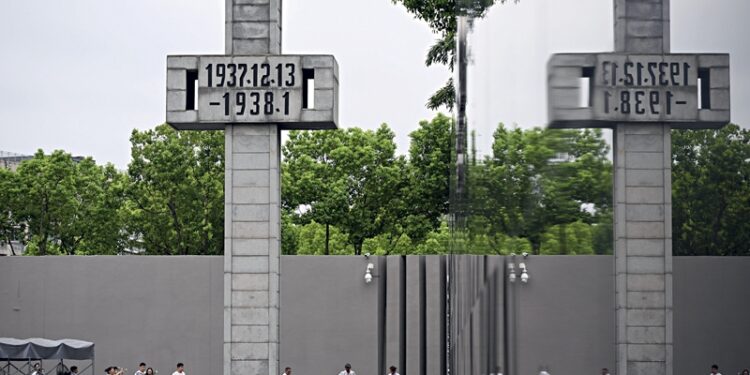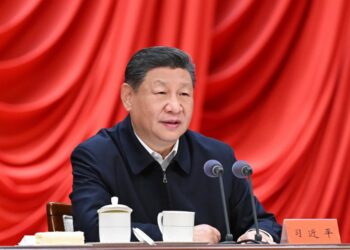Memorial of the victims of the Nanjing massacre (Jiangsu), September 3, 2024
The current world is going through deep and complex mutations. Geopolitical tensions and the risks of confrontation between blocks bring us once again to a decisive crossroads. In this 80
The need for a complete historical perspective devoid of occultations is essential. As French researcher Sonia Bressler points out, the dominant Western story of the Second World War has long ignored the crucial role played by China on the main eastern front. This omission, far from being harmless, has not only distorted the representation of historical facts, but also fueled a number of contemporary misunderstandings. In this context, highlighting the decisive contribution of Chinese soldiers and civilians is not only necessary for historical justice, but also represents an angular stone essential for the construction of mutual trust for the future.
Behind the fierce clashes between countries and blocks, another more fundamental fight continues tirelessly – the timeless confrontation between humanity and barbarism, conscience and atrocity, which is often manifested in individual stories.
Whether John Rabe, a German businessman who protected hundreds of thousands of Chinese civilians in the occupied and martyred city of Nanjing, or fishermen from Zhoushan helping British prisoners in icy waters, these acts reveal an immutable truth: the most solid foundations of peace reside in a human mutual aid.
These individual choices do not belong only in the past. Preserved and transmitted from generation to generation, they have become solid links of friendship between peoples. When a young Frenchman gives China family photos testifying to the Japanese atrocities during the war, or when descendants of survivors and rescuers find themselves, we are witnessing the metamorphosis of historical memory in friendship and confidence. In an uncertain world, these emotional ties, based on shared humanity, are particularly precious to fill fractures and forgetfulness.
Today, returning to history is not intended to perpetuate hatred, but to draw from the past a wisdom and a force for the future. As David Gosset, expert in international affairs, peace, is never a natural achievement, but a fragile heritage that requires constant vigilance. As soon as dialogue is replaced by confrontation, that understanding is consumed by distrust, the tragedies of history can resurface in new forms. Consequently, the construction of sustainable peace is based on mutual respect, pragmatic cooperation and the defense of effective multilateralism under the leadership of the United Nations. At a time when conflicts in Ukraine and the Middle East shake the international order and flout the most fundamental humanitarian principles, the call of Sonia Bressler takes a particular resonance: it is only by recalling the historical truth together, by recognizing the suffering and mutual aid, that we can advance hand in hand and offer to future generations a world, not a world.








